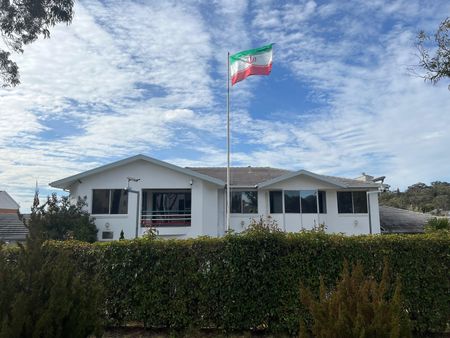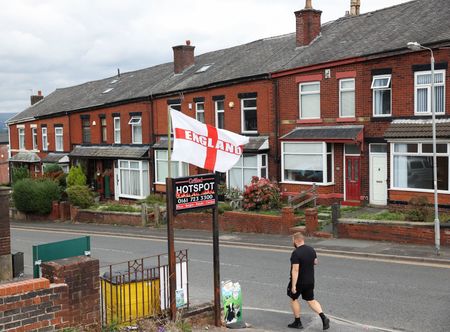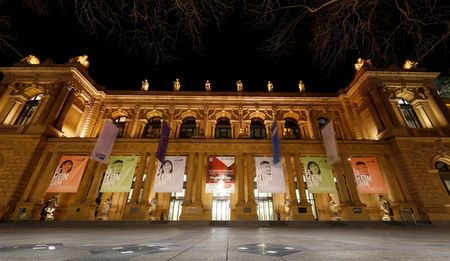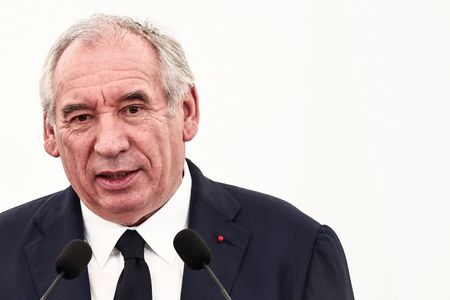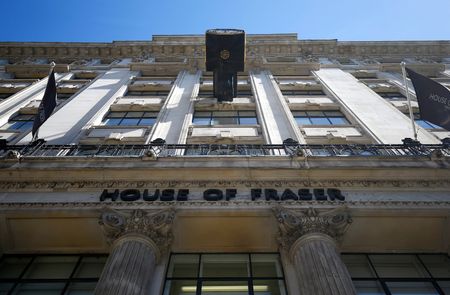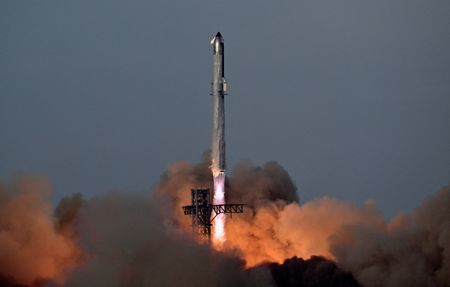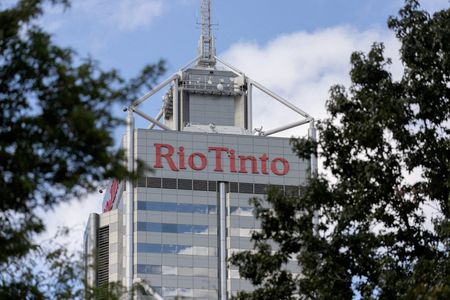By Melanie Burton and Renju Jose
MELBOURNE (Reuters) -A man charged with setting fire to a Melbourne synagogue appeared in court on Wednesday over an attack Australia says was orchestrated by Iran and has led to the expulsion of Tehran’s ambassador.
Australia said on Tuesday Iran sought to disguise its involvement in two 2024 attacks, at the Adass Israel Synagogue in Melbourne and on a kosher restaurant in Sydney, by using criminals and members of organised crime gangs.
Canberra is the latest Western government to accuse Iran of carrying out hostile covert activities on its soil. Last month, 14 countries, including Britain, the U.S., and France, condemned what they called a surge in assassination, kidnapping, and harassment plots by Iranian intelligence services.
Younes Ali Younes, 20, appeared for the first time via video link at Melbourne Magistrates Court on Monday in connection with the attack on the synagogue in December 2024, that gutted the building and destroyed sacred texts, causing millions of dollars in damage.
He spoke only to confirm he could hear and understand proceedings, and is yet to enter a plea.
His lawyer, Mark Aouad, declined to comment on the case, that is scheduled to return to court on December 4.
Police have already charged two alleged accomplices.
Canberra’s order for Iranian ambassador Ahmad Sadeghi to leave within seven days was its first such expulsion of any foreign ambassador since World War Two.
Sadeghi was seen for the first time on Wednesday at the Iranian embassy in Canberra since Australia ordered his expulsion.
He made no comment to media as he left the building in a white car.
INCIDENT SURGE
Since the Israel-Gaza war began in October 2023, Australian homes, schools, synagogues, and vehicles have been targeted in antisemitic vandalism and arson, while Islamophobic incidents have also surged.
Home Affairs Minister Tony Burke said in an interview with ABC Radio on Wednesday there was no reason to believe the people behind the two antisemitic attacks linked to Iran were aware Tehran’s Islamic Revolutionary Guard Corps (IRGC) was directing them.
“But that doesn’t change the seriousness from the Australian government’s point of view that Iran was still involved in directing attacks on Australian soil,” Burke said.
Iran has repeatedly denied such allegations, which it says are part of a campaign against it by hostile Western powers.
Australian Foreign Minister Penny Wong warned Australians to avoid travelling to Iran after the government decided to close its embassy in the country, where she estimates up to 4,000 Australian citizens are currently living.
“If you are in Iran, you should come home,” Wong told Nine News.
Israeli government spokesperson David Mencer said on Tuesday Prime Minister Benjamin Netanyahu’s “forthright intervention” and his criticisms against Australia’s decision to recognise a Palestinian state may have triggered Australia’s decision to expel Iranian diplomats.
“The relationship between this country and Australia was damaged, and so it’s welcome that after Prime Minister Netanyahu’s timely intervention that these actions have been taken by Australia’s government,” Mencer told reporters.
Netanyahu has personally attacked his Australian counterpart Anthony Albanese, describing him as “a weak politician who betrayed Israel and abandoned Australia’s Jews” over his decision to recognise a Palestinian statehood at the United Nations General Assembly in September.
“Complete nonsense,” Burke said on Wednesday, when asked about Israel claiming credit for Australia’s decision to order Sadeghi to leave the country.
“There was not a minute between us receiving this assessment and us starting to work through what we would do as a response.”
(Reporting by Melanie Burton in Melbourne and Renju Jose in Sydney; Writing by Alasdair Pal; Editing by Lincoln Feast and Saad Sayeed)

